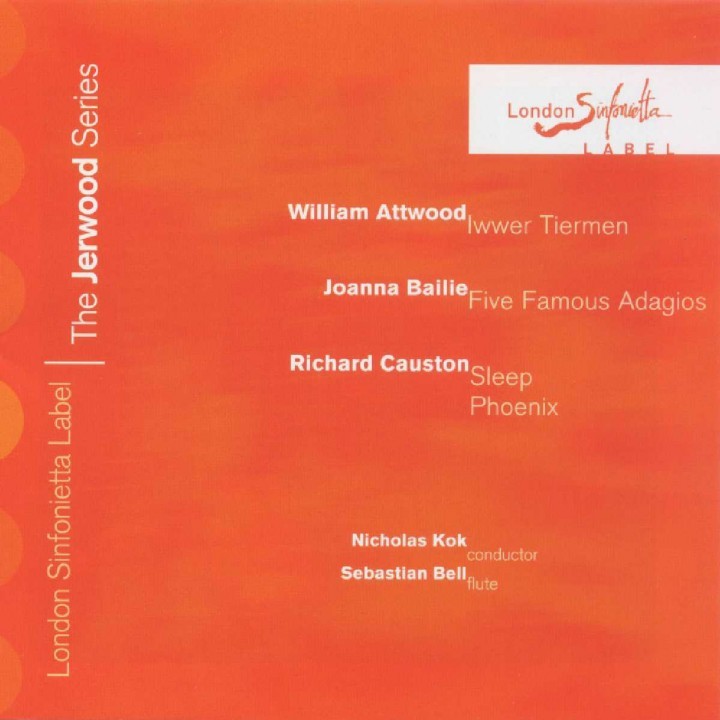Richard Causton
Richard Causton has been described as “one of the most courageous and uncompromising artists working today”.
Following studies with Franco Donatoni and Jeremy Dale Roberts, he has worked internationally with a number of leading artists at venues including the Lincoln Center in New York, the Concertgebouw in Amsterdam and the South Bank Centre in London. Causton has collaborated with ensembles including the BBC Symphony Orchestra, Philharmonia Orchestra, City of Birmingham Symphony Orchestra, Orchestra of the Age of Enlightenment, Sinfonieorchester Basel, Rundfunk- Sinfonieorchester Saarbrücken, London Sinfonietta, Birmingham Contemporary Music Group, and the Nash Ensemble.
His work is recorded on Metier, Delphian, Orchid, Regent and NMC, whose portrait disc – Millennium Scenes NMC D192 – was listed as “Outstanding” in International Record Review and was No.1 in the Sunday Times’ 100 Best Records of the Year (Contemporary Music section). He has been the recipient of awards including a Royal Philharmonic Society Award, a British Composer Award and First Prize at the International ‘Nuove Sincronie’ Competition.
Causton’s works often engage with political themes (as in Millennium Scenes and The Flight, a setting of a specially written poem by George Szirtes for the Festival of Nine Lessons and Carols at King’s College, Cambridge), and his search for new sounds has on occasion led him to build a new instrument or seek out a new playing technique. His works also include a Nocturne for 21 Pianos (commissioned by the City of London Festival), and a Concerto for Percussion and Gamelan (commissioned for Dame Evelyn Glennie by the Cheltenham Festival).
Recent pieces include Ik zeg: NU (2019) which was premiered by Sakari Oramo and the BBC Symphony Orchestra at the Barbican Centre to critical acclaim: “Nowness and then-ness move in parallel in this spacious, beautifully constructed work” (Anna Picard, The Times); “… holds two timeframes in play simultaneously, and brilliantly” (Erica Jeal, The Guardian). It was one of just two works selected by the BBC to represent the UK at the International Rostrum of Composers, and has now been broadcast in dozens of countries worldwide.
Causton is Professor of Composition at the University of Cambridge.
Richard Causton has been described as “one of the most courageous and uncompromising artists working today”.
Following studies with Franco Donatoni and Jeremy Dale Roberts, he has worked internationally with a number of leading artists at venues including the Lincoln Center in New York, the Concertgebouw in Amsterdam and the South Bank Centre in London. Causton has collaborated with ensembles including the BBC Symphony Orchestra, Philharmonia Orchestra, City of Birmingham Symphony Orchestra, Orchestra of the Age of Enlightenment, Sinfonieorchester Basel, Rundfunk- Sinfonieorchester Saarbrücken, London Sinfonietta, Birmingham Contemporary Music Group, and the Nash Ensemble.
His work is recorded on Metier, Delphian, Orchid, Regent and NMC, whose portrait disc – Millennium Scenes NMC D192 – was listed as “Outstanding” in International Record Review and was No.1 in the Sunday Times’ 100 Best Records of the Year (Contemporary Music section). He has been the recipient of awards including a Royal Philharmonic Society Award, a British Composer Award and First Prize at the International ‘Nuove Sincronie’ Competition.
Causton’s works often engage with political themes (as in Millennium Scenes and The Flight, a setting of a specially written poem by George Szirtes for the Festival of Nine Lessons and Carols at King’s College, Cambridge), and his search for new sounds has on occasion led him to build a new instrument or seek out a new playing technique. His works also include a Nocturne for 21 Pianos (commissioned by the City of London Festival), and a Concerto for Percussion and Gamelan (commissioned for Dame Evelyn Glennie by the Cheltenham Festival).
Recent pieces include Ik zeg: NU (2019) which was premiered by Sakari Oramo and the BBC Symphony Orchestra at the Barbican Centre to critical acclaim: “Nowness and then-ness move in parallel in this spacious, beautifully constructed work” (Anna Picard, The Times); “… holds two timeframes in play simultaneously, and brilliantly” (Erica Jeal, The Guardian). It was one of just two works selected by the BBC to represent the UK at the International Rostrum of Composers, and has now been broadcast in dozens of countries worldwide.
Causton is Professor of Composition at the University of Cambridge.
Recordings by this composer
RecordingsCompilations with this composer
CompilationsRelated composers
Related composersRelated news
NewsExternal Links
Music Map
Discover more about the classical music of today with NMC's Music Map, and exciting and educational online tool which enables you to see and hear the connections between composers, their teachers, pupils, influences and their works.
Music Map




